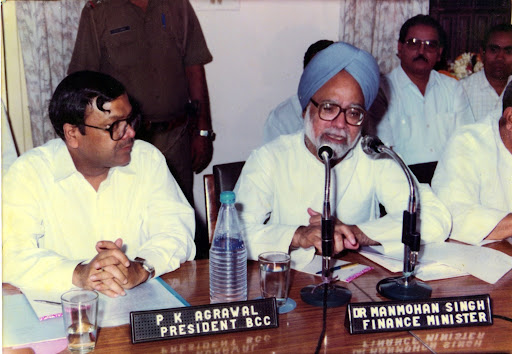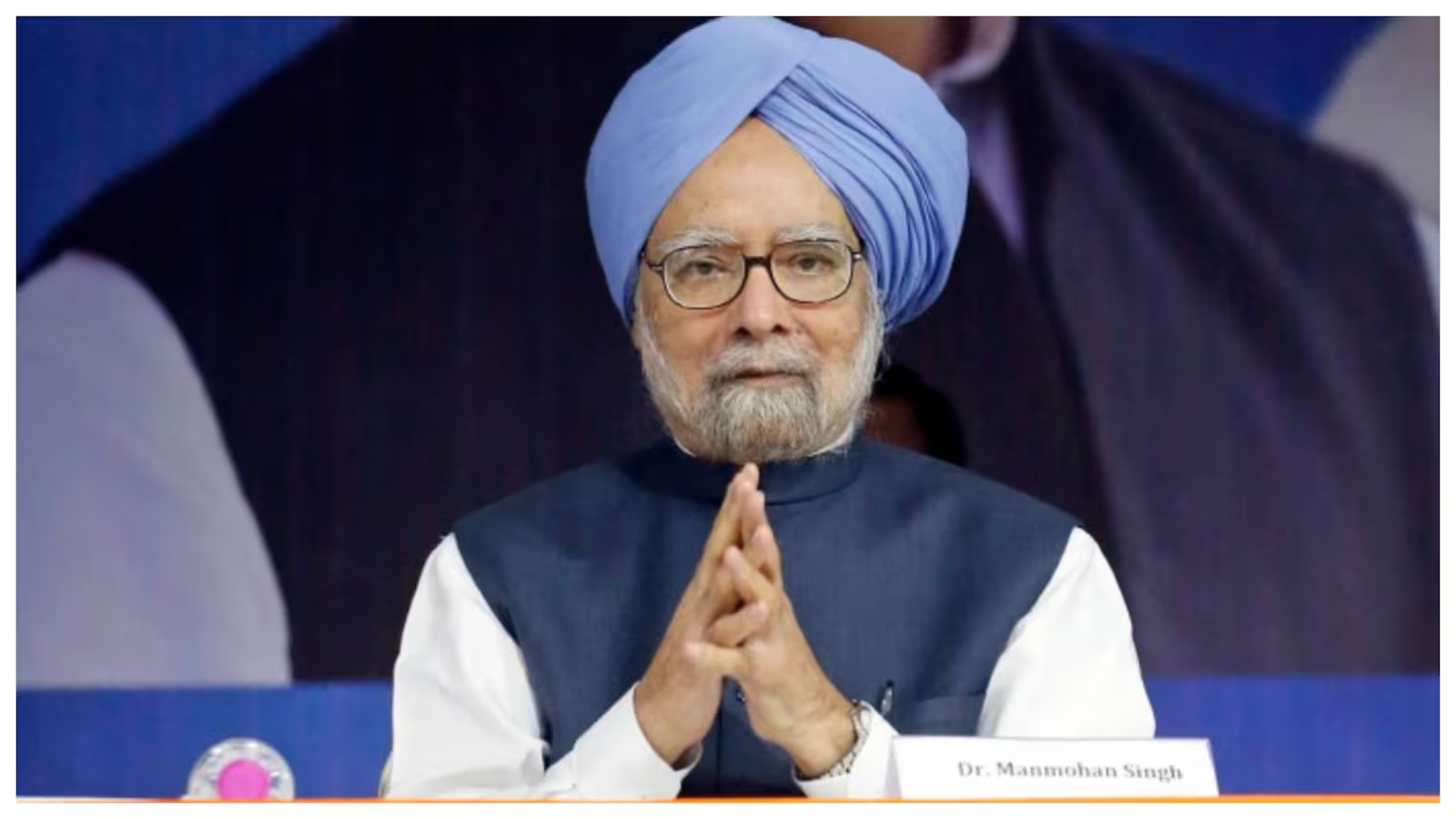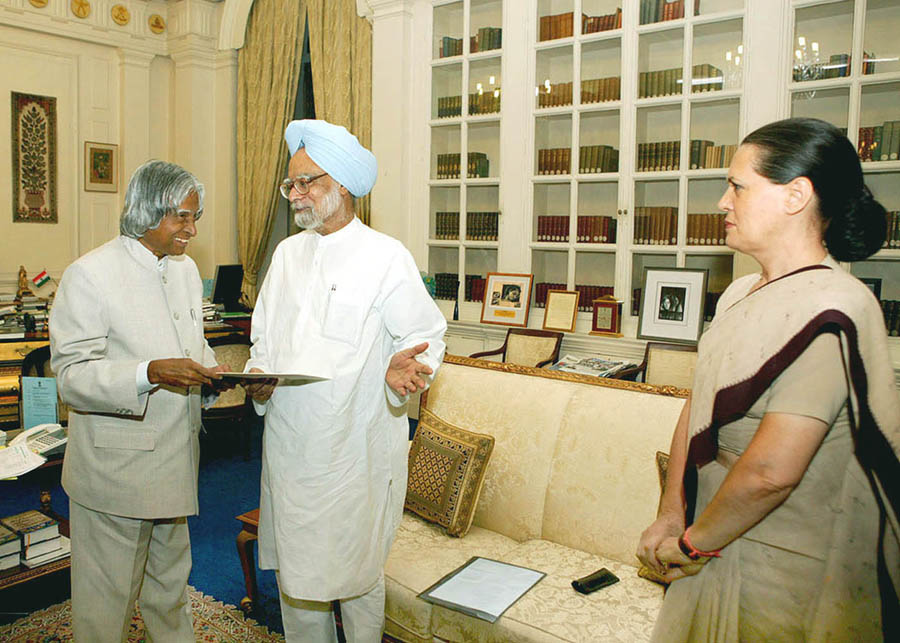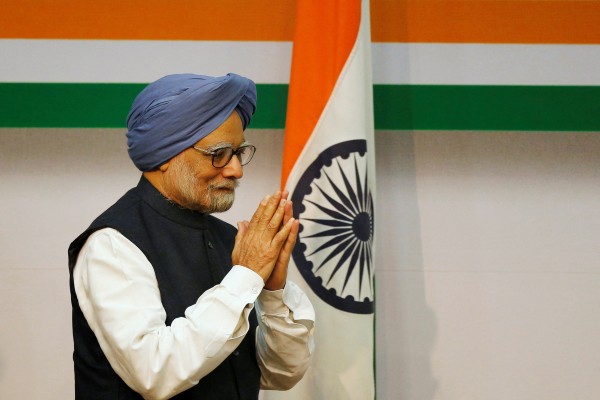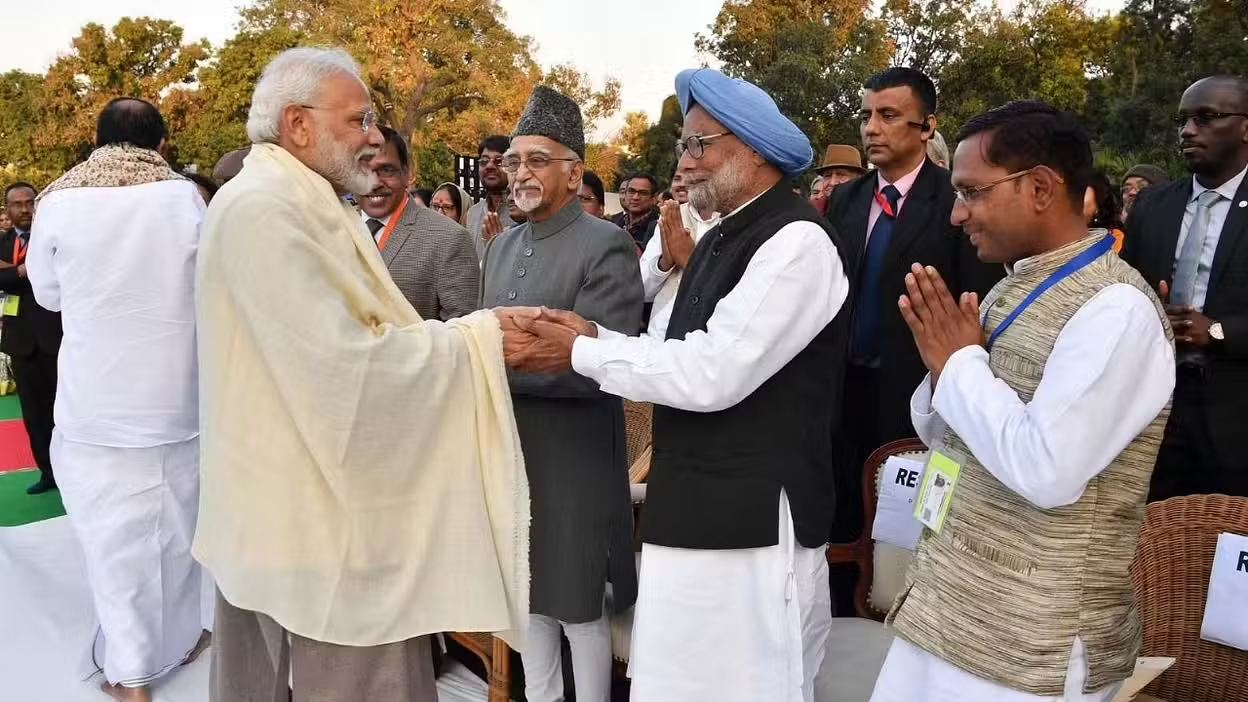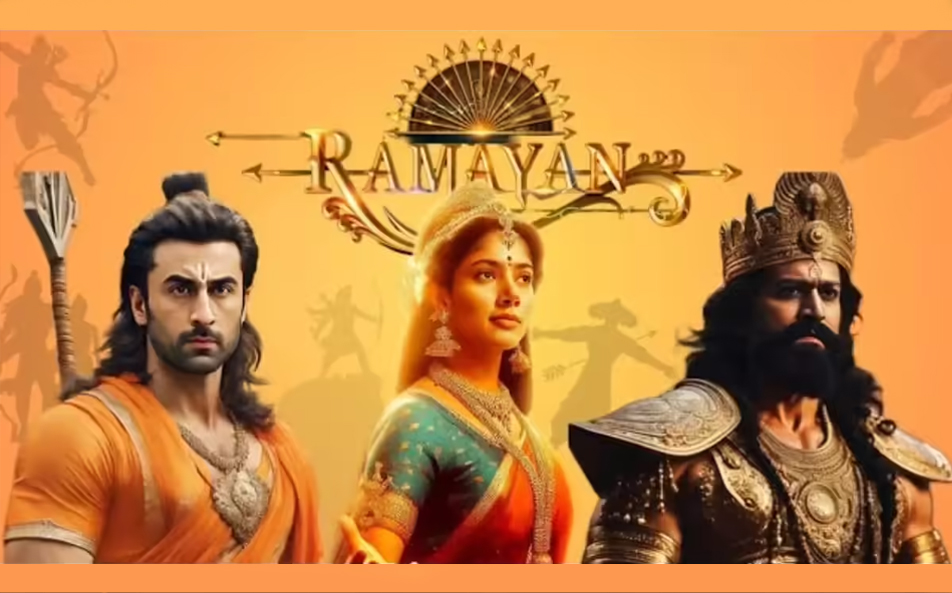
The United Indian

“No Power On Earth Can Stop An Idea Whose Time Has Come” – Former PM Dr. Manmohan Singh
India lost one of its most distinguished leaders and economists as former Prime Minister Dr. Manmohan Singh passed away at the age of 92 on December 26, 2024. He was rushed to the All India Institute of Medical Sciences (AIIMS) in New Delhi in critical condition due to age related issues, where he breathed his last in the evening hours. His death marks the end of an era that saw India transform from a struggling economy to a global powerhouse.
Known for his soft-spoken demeanor and unassuming personality, Dr. Manmohan Singh's journey from a small village in Punjab to the highest office of the world's largest democracy is nothing short of remarkable. His story is one of brilliant scholarship, unwavering dedication, and a deep commitment to public service.
Early Life and Education
Born in 1932 in Gah, Punjab (now in Pakistan), Singh's early life was marked by hardship and determination. Despite studying under the light of kerosene lamps, he excelled academically. He completed his education at Punjab University, went on to Oxford University on a scholarship, and earned his doctorate from Oxford in 1962. His academic brilliance was evident early on, and he later taught at Delhi School of Economics, building a reputation as an exceptional economist.
Dr. Manmohan Singh - The Economist Who Saved India
While Dr. Singh held various prestigious positions throughout his career, including positions at the UN and the Reserve Bank of India, his most transformative role came in 1991 when Prime Minister P.V. Narasimha Rao appointed him as Finance Minister. India was facing its worst economic crisis, with foreign exchange reserves barely enough to cover three weeks of imports.
As Finance Minister, Dr. Singh implemented bold reforms that liberalized India's economy. He dismantled the infamous "License Raj," encouraged foreign investment, reduced trade barriers, and reformed capital markets. These reforms, which came to be known as India's economic liberalization, pulled the country back from the brink of economic collapse and laid the foundation for decades of growth.
The Journey to Becoming Prime Ministership
In 2004, in a surprising turn of events, Dr. Manmohan Singh became India's 14th Prime Minister. Leading the United Progressive Alliance (UPA) government for two consecutive terms (2004-2014), he became the first Sikh to hold the office and the first Prime Minister since Jawaharlal Nehru to be re-elected after completing a full five-year term.
His Achievements as Prime Minister
During his tenure as Prime Minister, Dr. Singh continued his mission of economic transformation while focusing on inclusive growth. His government implemented several landmark initiatives:
The Right to Information Act (2005) brought unprecedented transparency to governance. The National Rural Employment Guarantee Act (NREGA) became the world's largest job guarantee scheme. The nuclear deal with the United States ended India's nuclear isolation while maintaining strategic autonomy.
Under his leadership, India achieved its highest economic growth rate of 9.3% in 2007-08. His government lifted millions out of poverty and doubled per capita income between 2004 and 2014. The period saw significant improvements in social indicators, with schemes like the Mid-Day Meal Program and Sarva Shiksha Abhiyan strengthening education, while the National Rural Health Mission improved healthcare access.
The Statesman and Legacy Of Dr. Manmohan Singh
What set Dr. Singh apart was his integrity and intellectual honesty. In an era of political rhetoric, he remained a man of few words but decisive action. His famous quote, "History will be kinder to me than the contemporary media," reflects both his quiet confidence and his focus on long-term impact over short-term popularity.
His economic vision was unique in its balance of free-market principles with social welfare. He believed in gradual reforms with a human face, often saying, "Nobody should go to bed hungry." This philosophy guided his policies, which aimed to make growth inclusive and sustainable.
Awards and Accolades
Throughout his distinguished career, Dr. Manmohan Singh received numerous prestigious honors that recognized his contributions to economics, public service, and nation-building. He was awarded India's second-highest civilian honor, the Padma Vibhushan, in 1987 for his exceptional public service. His academic brilliance was recognized internationally when he received the Adam Smith Prize from the University of Cambridge and the Wright's Prize for Distinguished Performance at St. John's College. Multiple renowned universities, including Oxford, Cambridge, and Punjab University, bestowed upon him honorary doctorates. In 2010, he received the World Statesman Award from the Appeal of Conscience Foundation in recognition of his leadership in fostering democracy and religious freedom. His alma mater, Oxford University, established the Dr. Manmohan Singh Scholarship in his honor, supporting talented Indian students. In 2014, the Japanese government awarded him the Grand Cordon of the Order of the Paulownia Flowers, one of Japan's highest awards for foreign nationals, acknowledging his contribution to strengthening Indo-Japanese relations. These accolades reflect not just his personal achievements but also his lasting impact on India's economic and political landscape.
Challenges and Criticisms Faced By Dr. Manmohan Singh
Dr. Manmohan Singh's second term as Prime Minister (2009-2014) faced challenges including allegations of corruption in his government, though his personal integrity was never questioned. Critics often pointed to his perceived silence on controversial issues and suggested he was overshadowed by Congress party leadership. However, his defenders argue that his quiet diplomacy and consensus-building approach were exactly what India needed during those years.
Personal Life and Values Of Dr. Manmohan Singh
Throughout his life, Dr. Manmohan Singh maintained a modest lifestyle that reflected his humble beginnings. He was known for his humility, scholarly approach, and dedication to public service. His marriage to Gursharan Kaur in 1958 was a partnership that stood by him through all his years of public service, and together they raised three daughters.
A Lasting Impact
Dr. Singh's passing leaves behind a legacy that transcends political boundaries. He will be remembered not just as an economist who saved India from economic crisis or as a Prime Minister who led the country through a period of significant growth, but as someone who showed that competence, integrity, and humility can coexist at the highest levels of public office.
His contribution to India's development story is immeasurable. From being the architect of economic liberalization to leading the country through its highest growth phase, Dr. Singh's fingerprints are on many of modern India's successes. As the nation mourns his loss, his vision of an inclusive, prosperous India continues to inspire future generations.
In Dr. Manmohan Singh's passing, India has lost not just a former Prime Minister, but a true statesman who dedicated his life to the nation's progress. His legacy will continue to influence India's economic and political discourse for years to come.
The Union government declared a seven-day mourning in honour of former prime minister Manmohan Singh. During this period, the National Flag will be flown at half mast across India and there will be no official entertainment throughout these seven days. All Indian missions and High Commissions abroad have also been requested to adhere to the half mast. The Cabinet will be meeting at 11 am on Friday to pay tributes to the “architect of India's economic reforms”.
Dr Manmohan Singh's last rites will be held in New Delhi on Saturday, Congress leader KC Venugopal announced, adding an official statement on the same will be released soon. Singh's funeral will be performed with full state honours,a notice from the central government said. The former prime minister's mortal remains were brought to his residence, 3 Motilal Nehru Marg, late on Thursday. Singh's body will be placed for the public to pay their last respects, ANI reported.
Read more in Recent Events
Jul 09, 2025
TUI Staff
Jul 03, 2025
TUI Staff
Jul 03, 2025
TUI Staff
Jun 29, 2025
TUI Staff

Stay Tuned with The United Indian!
Our news blog is dedicated to sharing valuable and pertinent content for Indian citizens. Our blog news covering a wide range of categories including technology, environment, government & economy ensures that you stay informed about the topics that matter most. Follow The United Indian to never miss out on the latest trending news in India.
©The United Indian 2024






